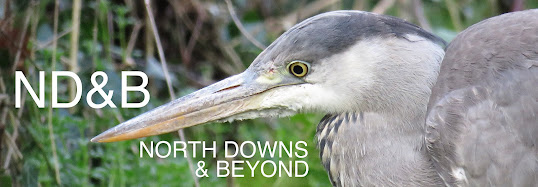Number 8 - Oriole cathedral
Number 8 - 26 May 1978 - Golden Orioles at Lakenheath
Before Lakenheath was a flagship RSPB wetland reserve, it was virtually bird-less farmland. But it was still a much revered birding site, due to the presence of a poplar plantation, owned by the matchstick manufacturer Bryant and May. Confused? Then read on...
This particular poplar plantation had been adopted by a colony of Golden Orioles, which for us 1970s birders was a welcome splash of Mediterranean sunshine. To reach this fabled woodland you needed to be able to map-read your way along twisting country lanes, and drive along a farmland track until reaching a railway line. Here your journey ended. And it was here that I stood in the breaking dawn having slept in the car overnight. We were not alone - maybe three other cars were also parked up, each having just ejected a gaggle of birders, stretching and yawning into the promise of the day ahead.
Even though it was 05.30hrs it was already warm. And there was already a loud, rich, flutey sound coming to us from the plantation - the unmistakable song of a Golden Oriole. In silence we all trooped across the railway line (via a crossing) and stood at the edge of the trees. We couldn't see the bird, but it carried on singing. Ahead of us was a theatrical set forged by a combination of mother nature and big business, as the spaced out poplar trees, in their rigid rows, were shrouded in ribbons of mist, in turn lit by beams of early sunlight, sparkling in a million places from the dew drizzled vegetation. With another Oriole stating to sing, along with a couple of drowsily calling Cuckoos, the term 'dreamlike' had never been more appropriate. We were birding in nature's cathedral, and as such crept around with humble reverence. It took half an hour before a male gave itself up, the buttercup yellow and black form in the tree tops, flitting around in the ethereal light. Over the next two hours we watched up to seven birds (four of them males). We witnessed much chasing and copulation, one particular male mating with two females, one after the other. The best views were of a male that chased a Cuckoo through the trees, both birds flying above our heads. As the morning wore on and the sun got a firmer hold of the day, the activity reduced. The echoing quality of the song in the poplars diminished and some of the magic evaporated. The predominant sound was now taken over by singing Willow Warblers and Whitethroats, with the odd Oriole song coming from deeper in the wood. I left the scene feeling as if I had been blessed.
Before Lakenheath was a flagship RSPB wetland reserve, it was virtually bird-less farmland. But it was still a much revered birding site, due to the presence of a poplar plantation, owned by the matchstick manufacturer Bryant and May. Confused? Then read on...
This particular poplar plantation had been adopted by a colony of Golden Orioles, which for us 1970s birders was a welcome splash of Mediterranean sunshine. To reach this fabled woodland you needed to be able to map-read your way along twisting country lanes, and drive along a farmland track until reaching a railway line. Here your journey ended. And it was here that I stood in the breaking dawn having slept in the car overnight. We were not alone - maybe three other cars were also parked up, each having just ejected a gaggle of birders, stretching and yawning into the promise of the day ahead.
Even though it was 05.30hrs it was already warm. And there was already a loud, rich, flutey sound coming to us from the plantation - the unmistakable song of a Golden Oriole. In silence we all trooped across the railway line (via a crossing) and stood at the edge of the trees. We couldn't see the bird, but it carried on singing. Ahead of us was a theatrical set forged by a combination of mother nature and big business, as the spaced out poplar trees, in their rigid rows, were shrouded in ribbons of mist, in turn lit by beams of early sunlight, sparkling in a million places from the dew drizzled vegetation. With another Oriole stating to sing, along with a couple of drowsily calling Cuckoos, the term 'dreamlike' had never been more appropriate. We were birding in nature's cathedral, and as such crept around with humble reverence. It took half an hour before a male gave itself up, the buttercup yellow and black form in the tree tops, flitting around in the ethereal light. Over the next two hours we watched up to seven birds (four of them males). We witnessed much chasing and copulation, one particular male mating with two females, one after the other. The best views were of a male that chased a Cuckoo through the trees, both birds flying above our heads. As the morning wore on and the sun got a firmer hold of the day, the activity reduced. The echoing quality of the song in the poplars diminished and some of the magic evaporated. The predominant sound was now taken over by singing Willow Warblers and Whitethroats, with the odd Oriole song coming from deeper in the wood. I left the scene feeling as if I had been blessed.


Comments
Bob